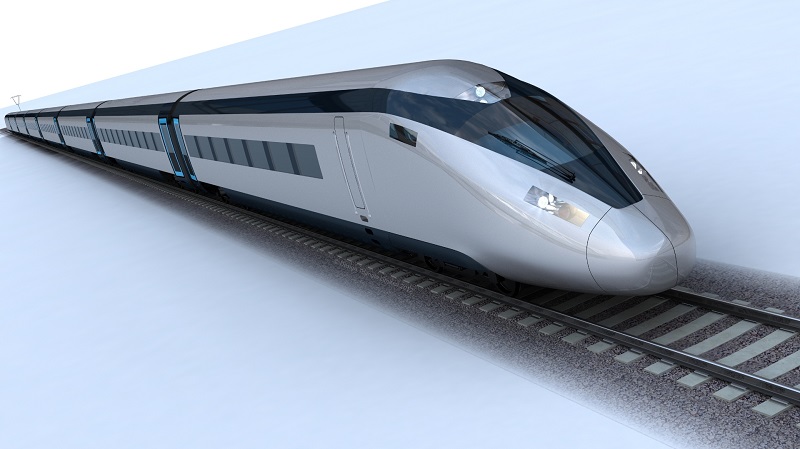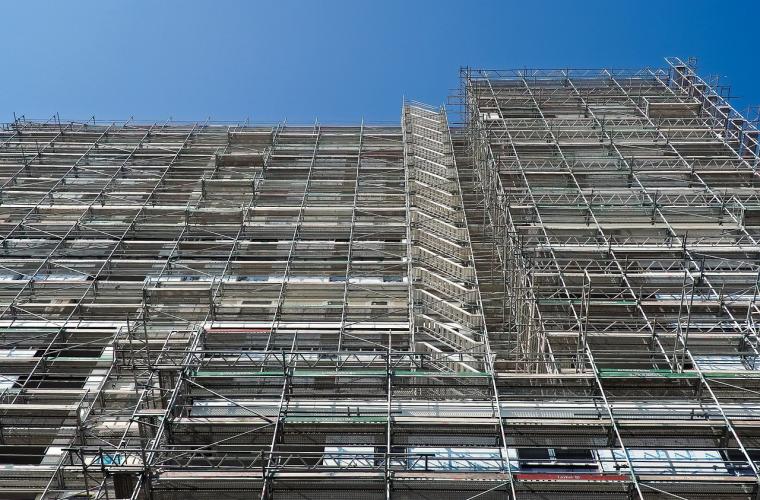The Prime Minister’s announcement that the Birmingham to Manchester leg of HS2 will no longer go ahead has left many in the industry angry and confused about the Government’s future plans.
At the Conservative Party annual conference, held in Manchester, the PM Rishi Sunak used his keynote address to confirm the decision.
He described it as a “revolution in the country’s transport infrastructure” which will see billions of pounds redirected from spiralling HS2 costs to build the daily connections that people depend on – unlocking potential, driving growth and transforming communities.
However, there was immediate criticism and consternation at both the HS2 decision and the plans outlined by the PM.

Construction Products Association’s Chief Executive Peter Caplehorn said: “The Prime Minister’s announcement on scrapping the rest of the HS2 project is extremely disappointing and frustrating.
“With this decision, jobs, investments, and resources amongst UK manufacturers and construction businesses large and small will go to waste. Following so soon after the chopping and changing of net zero policies this will only serve to further undermine the decreasing confidence that industry has for this government.
“The Prime Minister’s suggestion that £36 billion will be redirected into transport projects across the North and Midlands implies that it is a case of either one or the other; however, the country clearly needs major investment in local, regional and national infrastructure all together as was done during HS1 and Crossrail. Instead, we are left to suffer further uncertainty as the ‘savings’ might be spent on new projects that nevertheless won’t result in spades in the ground for many years yet.
“Construction product manufacturers and the whole construction supply chain are key enabling industries for nearly all government policies, but require certainty to allow longer-term planning for skills, materials, and plant investment. This is especially true around major infrastructure projects. It is important therefore for government and industry to learn the lessons here about how such projects are delivered. In particular, government needs to seek greater consistency in terms of planning and supervision, and ensure it avoids pauses, reviews and constant changes in direction that create waste.
“All of these are significant causes of costs spiralling out of control. Better infrastructure planning is desperately needed within government, with robust mechanisms for oversight, accountability and delivery embedded within policy to avoid these projects becoming the victim of short-term political changes and electioneering tactics.”
Eddie Tuttle, Director of Policy, External Affairs and Research at the CIOB, said: “Long-term infrastructure projects, like HS2, employ large numbers of skilled workers and apprentices and go some way to securing a pipeline of consistent work for the construction sector.
"It is well recognised that the built environment industry works best when it has certainty in policy making and investment, so we hope the HS2 funding is reinvested into similar projects which will support the upskilling of the construction workforce, particularly in the north of England, where such investment is so vital for the levelling up agenda.
“In a time of economic uncertainty, where we are witnessing supply-chain collapse, it is now more necessary than ever for Government to commit to public sector projects that benefit not only the local workforce and their communities but also the wider economy.
"It's therefore important Government moves quickly to provide more detail on the plans it now has to improve the transport infrastructure in the north and communicates with the construction sector which will be responsible for delivering them.”
The recently released RICS manifesto called for investment in regional rail infrastructure, and we look forward to more detail on Network North.
It said: “Investors will be looking for certainty and sustainability, and plans should be developed with regional communities. Key to this will also be any further plans to address the housing shortage.
“As facts on climate change have not changed and neither has the need to support the next generation, we are hopeful that the new network will embrace sustainable practices. RICS and our members are equipped to support this, and we highlight our recent launch of our world-leading standard for consistent and accurate carbon measurement (Whole Life Carbon Assessment standard).
“RICS have long called for infrastructure that supports communities and growth led by employment. Our latest construction survey has however continued to show skills shortages in construction, and the skills agenda will be critical to delivery of these projects. Industry must take a multifaceted approach to address the skills crisis and ensure greater diversity, equity and inclusion.”
Julian Worth FCILT, spokesperson for The Chartered Institute of Logistics and Transport’s Strategic Rail Policy Group as expressed deep disappointed at the cancellation of HS2 north of Birmingham and the negative consequences this is likely to have for the British economy and environment.
“The dramatic improvements in connectivity the North and Scotland would have seen cannot be delivered by alternative schemes and their economies will be significantly disadvantaged as a result,” he said.
“The rest of the world is forging ahead with construction of high-speed rail lines as the preferred way of improving infrastructure and decarbonising long-distance transport. It does not seem plausible that the current UK government is right to abandon high speed rail and that everyone else has it wrong.
“The problem with HS2 is not that it is the wrong project, but that its costs have been allowed to escalate out of control. Some cost inflation was inevitable as a result of Putin's invasion of Ukraine, but not to the extent which has occurred on HS2. Other densely populated countries are able to control the cost of major infrastructure projects and, within the UK, HS1 was delivered on time and under budget.
“A level of cost inflation has come about by changes to specification – particularly compared to the original proposals for a TGV-style line. Subsequent cost inflation suggests that something has gone badly wrong with the management of HS2 and we consider that a key factor was the failure to appoint and retain seasoned professionals, with knowledge of how to specify, tender and control major rail schemes, to senior roles in the project. CILT believes the correct course of action would have been to undertake a comprehensive review of HS2 costs by such seasoned professionals, using best practice from around the world, and considers the opportunity to do so should now be taken. Rather than a "bespoke UK" solution, consideration should be given to using specifications from existing schemes in Europe and beyond.
“The climate crisis is worsening by the year and the need to decarbonise is becoming greater and more urgent. Net Zero 2050 remains an imperative and Government must not weaken long term commitments for short term expediency. Funding should not be diverted to high carbon road projects simply to satisfy the demands of a vocal minority.
“This is particularly true with freight and logistics. Almost all large companies now have clear carbon reduction strategies, but decarbonising long distance road freight movements is extremely challenging. Battery HGVs will carry out local and regional distribution, but decarbonising trunk haulage by road is much more difficult and, for this reason, modal shift to rail trunking is an attractive option for many companies. Rather than a significant allocation to road projects, a proportion of any money released from HS2 should be invested in modal shift by increasing capacity at key locations and electrifying missing links in the core rail freight network, 60% of which is already electrified. Wiring 800 miles over the next 20 years at a cost of less than £2bn would allow c.95% of rail freight to be electrically hauled with zero carbon emissions.
“We welcome the announcement that capacity is to be increased on the vital freight route from Felixstowe to the Midlands and North, with investments at Ely and Haughley Junctions. This route should also be electrified as key strategic investment for freight and logistics, supporting supply chains for businesses in the Midlands and the North.
“A series of investments in capacity on the West Coast Main Line are also required in lieu of the capacity that would have been released by HS2. These include 4-tracking between Colwich and Stafford plus between Winsford and Warrington. It is essential that a significant proportion of the capacity released by HS2 Phase 1 continues to be earmarked for freight.
“Providing certainty on such projects would help to encourage private investment in rail-connected logistics centres, which in turn supports the UK's move to decarbonise transport. This is private investment which may look outside of the UK if there remains uncertainty over when the projects replacing HS2 are due to be delivered.”




















